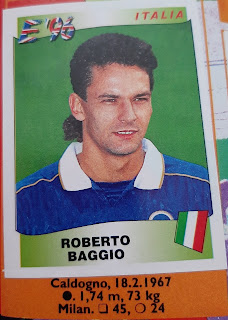N/A: Mark Hateley, Queens Park Rangers, Subbuteo Squads 1995/96
The tragic deaths of 39 people at the Heysel Stadium in 1985 had widespread repercussions. Approximately 600 Liverpool and Juventus fans were injured in the clashes and 14 Liverpool fans were convicted of manslaughter for their part in the rioting which culminated in the collapse of a concrete retaining wall. Albert Roosens, the head of the Belgian Football Association, also stood trial for his mismanagement of ticket sales for the European Cup final as well as two police chiefs for their poor handling of clashes between fans. On top of this English clubs were banned from European competitions by UEFA for five years with Liverpool served with a six-year ban.
Prior to the ban Nottingham Forest, Aston Villa and Liverpool had won all but one of the European Cup finals between 1977 and 1984. In the same period Ipswich Town and Tottenham Hotspur had won the UEFA Cup and a Neville Southall inspired Everton had won the Cup Winners’ Cup in 1984. UEFA’s ban robbed several clubs of the opportunity to extend English clubs’ domination of European competitions in the 1980s and, moreover, denied the likes of Oxford United, Coventry City, Wimbledon and Luton Town the opportunity to enjoy a foray into Europe as a fitting reward for their domestic cup success.
There is an oft-quoted line that the Chinese word for crisis is also the same as the word for opportunity. (Yes, crisitunity!) This isn’t strictly true but it’s fair to say that the tragedy at Heysel and the subsequent ban of English clubs from European competitions did provide an opportunity for young English players to ply their trade at a range of glamour clubs across Europe. Many more headed north of the border to represent the likes of Rangers and Celtic. And some did both which leads us to today’s subject: Mark Hateley.
On paper Mark Hateley had it all: height, strength and popstar good looks. In reality he was a decent striker who racked up over 90 appearances for Coventry before setting Divison 2 alight with 22 goals for Portsmouth in the 1983/84 season. Nowadays such performances would earn you the opportunity to sit on the bench for a newly promoted Premier League side but back in 1984 it saw Mark Hateley earn a £1m move to AC Milan. Maybe Orwell was on to something about dystopian futures.
Hateley’s time with the Rossoneri was underwhelming to say the least and a return of 21 goals in 88 appearances across an injury-ravaged three seasons was not exactly what the Milan giants were hoping for. However, sometimes it’s not the amount of goals you score but the teams you score them against and Hateley earned himself a place in AC Milan history, and the hearts of their supporters, when he headed home to secure a first win in six years against city rivals Internazionale. In 1987 he moved on to AS Monaco where his 14 goals helped them to the Ligue 1 title in his debut season under the guidance of a youthful Arsene Wenger. Two third-place finishes followed and in 1990 Hateley returned to Britain to join Rangers as his place in the side came under increasing threat from some lad called George Weah.
Rangers’ manager Graeme Souness had been keen to bring Hateley to Ibrox three years earlier and his patience was rewarded when Hateley notched up 112 goals during his five years in Glasgow. During this time Rangers picked up five successive Scottish Premier League titles and Hateley followed up his Scottish Football Writers’ Player of the Year award in 1993/94 with the SPL’s golden boot in 1994/95. Such success impressed those south of the border and, keen to push for a now-accessible Europe following an eighth place finish in the Premier League, Queens Park Rangers shelled out £1.5m to bring Hateley to Loftus Road.
Now aged 34 Hateley struggled to reproduce his goalscoring form at Rangers for QPR with only 2 goals in 14 Premier League appearances and the West London side were relegated at the end of the 1995/96 campaign. He stuck around to contribute three goals as the Rs attempted to escape Division 1 before heading to Leeds United on loan for six goalless appearances. Then, desperate to win a ninth successive SPL title and with a shortage of fit strikers, Rangers’ manager Walter Smith turned once again to the veteran forward. However, he picked up a red card on his debut against Celtic and only contributed one goal in four games. Nevertheless, Rangers regained the SPL title so I suppose it worked out as planned. Hateley moved on to Hull City in a player-manager role and, after one last jaunt to Scotland with Ross County, retired in 2000.
Mark Hateley was not alone in heading abroad to further his footballing career but by the time he hung up his boots it had become increasingly rare for English players to head to foreign shores. Obviously the readmittance of Premier League clubs to European competition was partly responsible for this but, with the exception of David Beckham and Owen Hargreaves, the ‘Golden Generation’ of English footballers had no experience of plying their trade overseas, a potential reason for their inability to live up to the hype associated with them. Nowadays, with the likes of Jadon Sancho benefitting hugely from his Bundesliga experience, the willingness to step out of their comfort zone is seen as essential for budding talent. Perhaps it’s time to give some credit to the pioneering spirit of the likes of Mark Hateley who turned a crisis into an opportunity back in the 80s.





Comments
Post a Comment